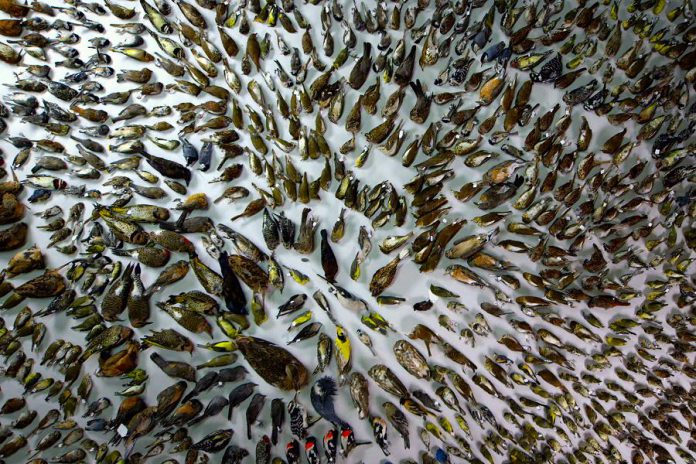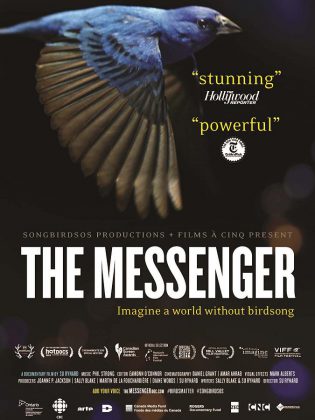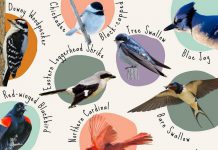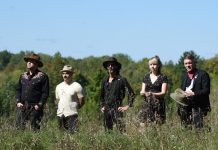
Everyone knows the saying “canary in a coal mine”, which is actually based on historical fact. Well into the 20th century, miners took canaries into coal mines as a way to detect toxic gases like carbon monoxide. If the canaries became sick or died, it was an early warning to the miners to leave the mine or to take protective action.
The 2015 documentary The Messenger — which screens at 2 p.m. on Sunday, October 2, 2016 at the Glen Crombie Theatre at Fleming College’s Frost Campus (200 Albert St. S., Lindsay) — takes the idea to the global scale.
The film chronicles the struggle of songbirds worldwide to survive in turbulent conditions brought about by humans, and argues that the decline of songbirds could signal the crash of the global ecosystem — similar to the disappearance of honey bees and the melting of the glaciers.

The Messenger screened earlier this year at the ReFrame Film Festival in Peterborough, but the October 2nd screening in Lindsay is special for several reasons.
Fleming College graduate Joshua See — who was in the first cohort of students to graduate from Fleming College’s Environmental Visual Communications Post Graduate Certificate in 2012 — collaborated closely with the film’s director Su Rynard.
Rynard will also be on hand following the screening for a discussion session, along with Michael Mesure, founder and executive director of the Fatal Light Awareness Program (FLAP), a non-profit organization committed to dealing with the issue of migratory birds dying from collisions with buildings (which the documentary also examines).
Finally, the screening is a fundraiser for a migratory bird monitoring project in the constructed wetland being developed at the Frost campus this fall. The wetland construction is being funded by Mason Homes to offset the loss of wetlands with ongoing development of their property at Highway 35 and Colborne St. The new wetland will not only provide much needed wildlife habitat but also provide Fleming students, from earth movers to environmental technicians, a vital hands-on learning experience.
There will also be an opportunity to view the new wetland, just south of the Trans Canada Trail.
Admission to The Messenger is by donation (a $5 minimum being suggested), with all proceeds going towards the migratory bird monitoring project.
The City of Kawartha Lakes Environmental Advisory Committee is presenting the screening of The Messenger in partnership with Fleming College. The Environmental Advisory Committee is committed to making public education opportunities available for the protection, conservation, and enhancement of the natural world in the City of Kawartha Lakes.


























